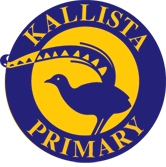We recognise the feelings of anxiety and concern many people may be experiencing during this time.
The following is some important and helpful advice from Beyond Blue, clinical psychologist Dr Michelle Lim and Lifeline Australia.
Videos
Advice from Clinical Psychologist Dr Michelle Lim:
Videos in this series are:
- Dealing with loss of control
- Support and kindness
- Social isolation
- Routine
- Source trusted information
Tips for staying calm and healthy
In terms of your physical health, the most important thing you can do is maintain basic hygiene, particularly frequently washing your hands with soap or using hand sanitiser. For your mental wellbeing, there are a number of things you can do:
- Maintain a healthy diet, exercise and sleep regime.
- Talk to loved ones about worries and concerns.
- Engage in hobbies and enjoyable activities.
- Be prepared – ensure you have enough food, supplies and medication on hand. Ask for help collecting these items where possible.
- Avoid or reduce your use of alcohol and tobacco.
- You may feel stressed listening to the news, so make sure you receive information through trusted and credible sources, rather than social media. Make sure one of those sources is specific to your state. This will help you feel more in control. If you can’t access the internet, get a friend or family member to read to you or show you the most up-to-date information from credible sources
Staying positive
While it might feel like we don’t have control of current events, it’s important to remember that we can do many things to feel empowered and enabled.
Find opportunities of sharing positive and hopeful stories with others, generate positive emotions by sharing memories, and take the opportunity to show acts of kindness.
Staying connected
It’s important to stay connected with friends and family at this time to reduce feelings of loneliness and isolation.
For older Australians, now might be the time to embrace technology. Younger family members can help you get set up and guide you through the process. Give it a go!
If you are more comfortable with the phone, call friends and family for regular catch-ups.
You could even write notes or letters.
For those in self-isolation or quarantine
Going into self-isolation or quarantine may feel daunting or overwhelming. Fear and anxiety about the pandemic can be overwhelming and cause strong emotions.
There are a number of ways to support your mental health during periods of self-isolation or quarantine.
- Remind yourself that this is a temporary period of isolation to slow the spread of the virus.
- Remember that your effort is helping others in the community avoid contracting the virus.
- Routines sound dull, but they’re good for our mental health. Try to go to sleep and wake up at the same time, eat at regular times, shower, and change your clothes. This will help you to manage your days and adjust when life starts to go back to normal.
- Try to maintain physical activity.
- Manage your stress levels, and if needed, increase your coping strategies (for example, listening to music, watching your favourite shows, meditation or exercise).
- Keep taking your medication. Phone or email your GP or pharmacist to find out how to get any new prescriptions you may need. If you’re staying at home and that’s disrupting your routine, set reminders to take your medicine when you need to.
- For those already managing mental health issues, continue to take any prescribed medication, continue with your treatment plan and monitor for any new symptoms.
- Seek professional support early if you’re having difficulties.
Conversations with children and young people
Families and caregivers of children and young people should discuss coronavirus (COVID-19) in an open and honest way that will be understood by the child or adolescent.
Talk about the facts without causing alarm, and in a way that is appropriate for their age and temperament. It is important to listen to any questions they may have, to let them know that they are safe and that it’s normal to feel worried or concerned.
If the media or the news is getting too much for them, limit exposure for young children and encourage teenagers to limit their exposure or turn it off completely.
Further tips for caring for younger children:
- Ask children what they have heard about coronavirus (COVID-19).
- The way parents behave can have a significant effect on children. Keep conversations calm and focussed on the facts. Emphasise efforts that are being taken to contain the virus.
- Model health-promoting behaviours for your children. For example, teach them to wash their hands with soap and water for 20 seconds.
- Educate the entire family about good health habits. Talk about what each family member can do to help others outside of the immediate family.
- Include children in family discussions and plans, in an age appropriate way.
- Address any misconceptions children may have that could result in stigmatising people or groups of people in the community.
For Victorians aged 17-25
Young people will have higher social needs at this time.
They will be experiencing FOMO (fear of missing out), feeling disconnected, worried about the state of their friendships, their school and their academic performances. Be mindful that they may become overwhelmed by the persistent bad news both here in Australia and internationally.
If they are a bit older, they will be worried about losing casual work and the financial pressures that can bring.
It is important to tell young people that it is normal to feel stressed out about the current situation. Encourage regular exercise, good practices for communicating with others online and have conversations about how this is impacting them.,
We may need to offer more support during this time, be it social, emotional or financial.
Encourage younger people to rely on trusted information sources rather than social media.
Conversations with older Victorians
Families and caregivers of older people should discuss news of coronavirus (COVID-19) in an open and honest way. There are some practical things you can do:
- Keep in contact by phone or using technology like video chat that allows you to see each other.
- Ensure they have enough supplies and offer to pick up on their behalf.
- Make sure they are eating healthy foods and staying active.
- Stress the importance of social distancing and/or isolation for the sake of their own health and the health of others.
- Acknowledge their feelings of anxiety and distress when they are asked to modify their routines and activities.
- Help family members or neighbours establish a new daily or weekly routine.
Who to call to get help
There are plenty of ways to support other people, or be supported if you are feeling anxious or uncertain.
Lifeline Australia 13 11 14
A crisis support service offering short term support at any time for people who are having difficulty coping or staying safe.
www.lifeline.org.au
Beyond Blue 1800 512 348
Coronavirus Mental Wellbeing Support Service.
https://coronavirus.beyondblue.org.au/
Eheadspace 1800 650 893
Online and webchat support and counselling for 12-25 year olds, their family and friends.
www.headspace.org.au/eheadspace/
Care in Mind – online and phone counselling for people living, working, or studying in Melbourne’s northern, central, and western suburbs. Phone: 1300 096 269 (24 hours a day, 7 days a week). CareinMIND online counselling.
MensLine – professional telephone and online support and information service for Australian men. Phone 1300 78 99 78 (24 hours a day, 7 days a week). MensLine online counselling.
Mindspot – free telephone and online service for people with stress, worry, anxiety, low mood or depression. It provides online assessment and treatment for anxiety and depression and can help you find local services. Call 1800 61 44 34 (8am – 8pm, Monday – Friday; 8am-6pm, Saturday).
Suicide Call Back Service – mental health support, call back service: 1300 659 467 or online at suicidecallbackservice.org.au (24 hours a day, 7 days a week)
Youth focused mental health and support services
Headspace – Call eheadspace on 1800 650 890 or online at www.headspace.org.au
Kids Helpline – Call 1800 55 1800 or kidshelpline.com.au
ReachOut – Online at reachout.com.au
SANE Australia – Call 1800 187 263 or online at sane.org
Specialist areas
1800Respect – confidential counselling, information and support for people impacted by sexual assault, domestic or family violence and abuse via phone or online chat. Phone: 1800 737 732 (24 hours a day, 7 days a week). 1800Respect online chat.
Directline – confidential alcohol and drug counselling and referral service. Phone: 1800 888 236 (24 hours a day, 7 days a week). Directline online counselling.
Switchboard Victoria – telephone and web counselling, information, and referral service for LGBTQI people. Phone: 1800 184 527 (3pm – 12am, 7 days a week). QLife Webchat.
Resources
- Information sheet: Mental health and coronavirus (COVID-19) information for seniors (Word)
- Information sheet: Mental health and coronavirus (COVID-19) information for parents and families (Word)
- Information sheet: Mental health and coronavirus (COVID-19) information for those in isolation (Word)
- Beyond Blue offers practical advice and resources at beyondblue.org.au. The Beyond Blue Support Service offers short term counselling and referrals by phone and webchat on 1300 22 4636.
- Lifeline offers tips, resources and advice, as well as crisis and suicide support. Phone: 13 11 14 (24 hours/7 days). Text: 0477 13 11 14 (6pm – midnight AEDT, 7 nights). Chat online: www.lifeline.org.au/crisis-chat (7pm – midnight, 7 nights)
- Phoenix Australia, the Centre for Post-Traumatic Mental Health, offers advice, tips and resources at phoenixaustralia.org
Dr Michelle Lim is a Senior Lecturer in Clinical Psychology at Swinburne University and leads the Social Health and Wellbeing (SHAW) Laboratory.

